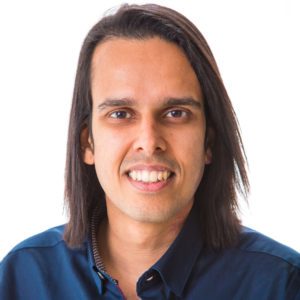Wisdom begins with curiosity and with questions. Questions about how things work, questions about yourself — questions about life and being. And, in all of this, we must remember that the finger is not the moon.
Thinking
The man who thinks that he knows it all, in addition to knowing little, is most likely to be a terrible bore. Those annoying, know-it-all types that you naturally want to avoid at social gatherings. The mark of a master is in eternally being a student. For he knows that even to set-up such a dichotomy is to run the risk of falling victim to sterility. Sterility that comes from an arrogant loss of curiosity. Sterility that dulls the mind and all growth.
The problem is that the nature of the mind is to seek definitive, fixed answers and to make dogmas out of them. Reflective-thought is certainly a powerful tool. It allows us to plan, analyse and manipulate our environments with great effectiveness. Yet, for all its power, reflective thought cannot fully describe reality. The moment we attempt to use words or any symbols to describe it, reality slips away. It is like trying to clasp air with your hands.
Reflective thought has undoubtedly made many phenomena tractable on paper, so tractable that we can send satellites to space and what not. But, we must always remember that the screen is not the show. The word is not the thing. The finger is not the moon.
Duality and control
Seeing duality and separating things is in a sense the essentially feature of thinking. We notice how things differ and we are able to make use of this information. However, this basic tendency which recognises up and down, in and out, hot and cold, can so easily mistake symbols for reality.
This same tendency leads to confusion about who we are. We complicate things and tie ourselves up in knots because we confuse our ego personalities — fragments of memory and arbitrary narratives — with our inner nature. Trying to describe yourself with a narrative, any narrative, produces the same problem of trying to clasp air with your hands. It simply cannot be done. And, if you insist on doing so, you are destined to fail.
The reality is that we seek to define and control ourselves through various narratives because we doubt ourselves so much. Because we doubt the inherent worth and wonder of being just as we are, such that we need to somehow confirm this by seeking all kinds of arbitrary status achievements.
As Hui-neng, the 7th century Chinese Zen master put it:
“Our nature itself remains pure. The sun and the moon are always shining. It is only due to cloud cover that there is light above but darkness below and we can’t see the sun, moon or stars. Then suddenly the wind of wisdom comes along and blows the clouds and drives the fog away, and a panorama of ten thousand images appears all at once.”
So, what is required is not more achievement and striving, rather a removal of the partial narratives of self that we cling to for validation. Narratives that make us forget that we are each a fractal of the entire realm of nature.
Realising the finger is not the moon
There is no denying that the use of symbols is both necessary and useful. We cannot help but produce them because the tendency is deeply human! We are an uber-cognitive animal after all. Yet, we can still use words and symbols while being mindful of their trappings. We can remember that the finger is not the moon, but rather points to it.
All this brings us full circle to the importance of questions and curiosity. For, it is the curiosity to look beyond the finger that allows you to find deeper understanding. That allows you to see beyond the surface narrative of your ego-personality and into your inner nature.
_____________________________________________________________________________________________



Recent Comments